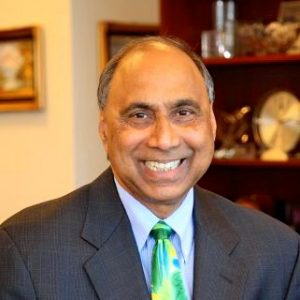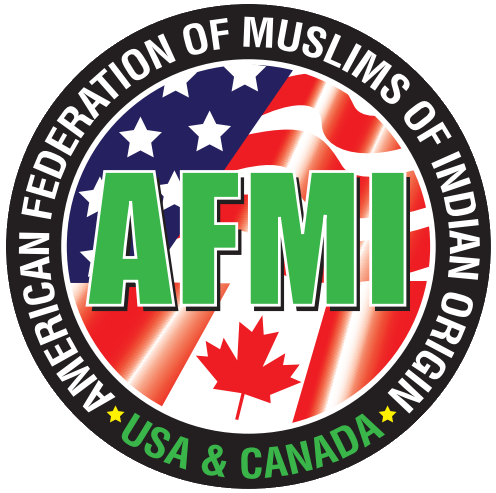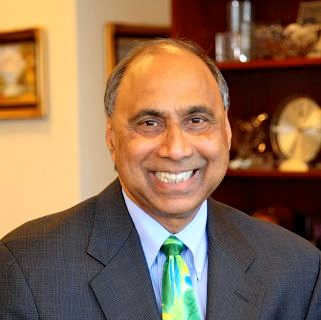AFMI Pride of India Award Acceptance Comments and
AFMI SILVER JUBILEE SPEECH
On
Civic Engagement: The Key to Promoting Educational and Economic Opportunity for Indian Muslims
By
Frank F Islam
August 2015
 Distinguished guests, friends, Ladies and gentlemen:
Distinguished guests, friends, Ladies and gentlemen:
Good Evening. Assalm Alaikum
Thank you Ali for your kind introduction.
And thank you for your warm welcome.
I would like to express my deep gratitude to Dr. Nadakar and Suhaib for their leadership. They are source of strength for all of us. Let us stand shoulder to shoulder with them for the vison we share and the values we cherish, nourish and nurture. Let us give them big round of applause.
It is a distinct honor and privilege to be here tonight to accept the “AFMI Pride of India’’ award. Also it is privilege to be asked to speak as a part of AFMI’s Silver Jubilee Celebration.
A lot of things brings us together as a fellow Indian Muslims with whom I share common history, common heritage, common bonds, a common cause, and a common goal and common vision. Our bonds are stronger than the differences that too often drive us apart.
I have received many awards. But this one is extra special because it comes from this prestigious organization in its silver jubilee year.
It is an honor to be included in the elite group that has won AFMI’s Pride of India award. As many of you know, past award winners have included: the noted lyricist and song writer, Javed Akhtar; Ram Vials Paswan, Union Minister; and Rehman Khan, Former Union Minister of Minority Affairs.
I must admit that receiving this award and joining such luminaries does not only make me proud. It makes me humble.
That’s because even though I recognize this award – the Pride of India – is given to only one person. It is deserved by many.
Indeed, as I look around this room at those of you who have supported AFMI and its initiatives, I see the richness and fullness of the Pride of India.
I see fellow soldiers and comrades in the fight to make India and the world a better place for Muslims. And, I am proud to be a partner with you in this sacred mission.
Therefore, it is my distinct honor and pleasure, to accept his award not for myself but on behalf of the community of American Muslims of Indian origin who are embarked on this journey with me.
So I guess this is the point where I have to sing for my supper.
But you know in all honesty, I can’t carry a tune – so you definitely would not want that. (Pause – wait for laughter)
Seriously, I would like to share my thoughts with you about an extremely important topic that I know is near and dear to all of us. That is what we can continue to do in order to improve the situation of disadvantaged Muslims in India.
As you all know, a silver jubilee is held to recognize staying together and being in existence for twenty-five years.
How many of you here have been associated with AFMI for twenty-five years? Would you please stand up and remain standing? What about twenty years or more? Please stand up. What about 10 years or more? Please stand up. What about more than 1 year? Please stand up.
Now, please give yourself a round of applause for being involved with this wonderful American organization that is making such a difference for Muslims in India. (Lead and encourage applause.)
Please be seated. Thanks. (Pause)
You all richly deserve that standing ovation. Because no matter whether you’ve been involved with AFMI since it started or have recently joined the fold, you are now engaged.
Getting engaged – that is what I will talk about today. The formal title for my speech is Civic Engagement: The Key to Promoting Educational and Economic Opportunity for Indian Muslims.
That’s the formal title. It’s a mouthful.
I don’t care if you remember that title. What I do want you to remember is the theme for my speech which is “Do Well Here, To Do Good There.”
Let me repeat and amplify upon that. We, as Indian American Muslims, should do well here in the United States so that we can do good over there in India.
We should do this because the need is great and those of us who have connections to India have a moral obligation to provide a helping hand to empower those Muslims in India through better access to educational and economic opportunities.
I will address that need, why we Indian Americans are so qualified to meet it, what I mean by civic engagement, and getting engaged through AFMI in my speech.
I must emphasize at the outset that I recognize that in addressing this topic here with those of you in this audience that I am preaching to the choir .But sometimes – even the choir and the preacher can benefit by coming together to renew and reaffirm their belief and commitment to a righteous and common cause.
The Nature of the Need
That said, why is extending a helping hand – a hand up – to Muslims in India so critical? Here are some sad facts:
The 2001 Census Report showed that the literacy rate of Indian Muslims was 59.1%. The rate for Muslim males in urban areas was much higher than in rural areas. The rate for females was substantially lower in each.
That same study showed that only 11% of Muslims in India pursue higher education compared to a national average of approximately 19% and that participation in the “general category of Muslims in higher education” had actually declined by 1.5% for the period studied
These are devastating findings that frame the critical nature of the need and present the challenge and opportunity for Indian Americans – and most especially for those of us who are Indian Americans of Muslim origin to participate in solving this problem.
Because of what we Indian Americans have accomplished in the United States, I absolutely and firmly believe that we are up to meeting this challenge.
The Status of Indian Americans
Here are some statistics on Indian Americans:
In 2013, there were 3.1 million Indian Americans comprising about 1% of the population of the United States. According to a Pew Research Center study conducted in 2012 and released in 2013, 10% of the respondents reported that they were Muslim.
That means the Indian Muslim population in the United States today is only around 300,000. Given this small number, I would say that we Indian Muslims hit way above our weight.
So, do all Indian Americans. Listen to this data carefully.
The Pew study disclosed that economically and educationally Indian Americans outperformed those in other Asian-American subgroups and the U.S. population in general. 38% of Indian Americans held advanced degrees compared to 30% for all Asian Americans and 10% for the entire population.
A recent research study found that immigrant entrepreneurship which has been a major contributor to the growth of the high tech sector has been stagnant recently. However, Indian Americans excel as high tech entrepreneurs.
The research that I found did not specifically break-out the economic and educational characteristics of Indian Americans. I would hypothesize based upon my own experience and exposure and looking at the successful Indian Americans in this audience here today that, in general we resemble other Indian Americans.
The bottom line is that Indian Americans of all religious beliefs are doing well – very well – here in the United States. That means we – especially those of us who are Indian American Muslims who are doing well – are in a position to do good. Civic engagement provides us with the basis for doing that.
The Nature of Civic Engagement
Civic engagement provides us with the basis for doing that. Let me explain what I mean by civic engagement.
Some times when I say civic engagement people mistakenly think I mean political engagement. I do not. Political engagement is a form of civic engagement – but just one form.
My definition of civic engagement is:
Civic engagement means working to make a difference in the civic life of our communities and developing the combination of knowledge, skills, values and motivation to make that difference. It means promoting the quality of life in a community, through both political and non-political processes.
As Muslims, the concept of civic engagement is central to our belief system. AFMI provides a perfect vehicle for expressing those beliefs and making a difference on behalf of less fortunate Muslims in India.
AFMI and Action
Through the years, AFMI has built a strong track record with its bottom-up strategy of supporting educational projects at the primary level. More recently, it has focused on expanding to higher grades of school and supporting the establishment of computer centers.
I have always felt we need to support higher education. These are not empty words. I am putting my money where my mouth is.
I have underwritten the building of a new school of management with an emphasis on entrepreneurship and innovation at Aligarh Muslim University. We are uniquely blessed. We embody the American Dream. With that thought and spirit in mind, my wife Debbie and I have committed $2M to support the building of Frank and Debbie Islam School of Management. We are reminded and guided by the phrase: To whom much is given much is expected. We see our contribution not as a charity but as an investment that will yield exponential returns in the future for thousands of Muslims across the globe. I believe my donation will expand the Aligarh Muslim University family tree by contribution to support the education of next generations. Aligarh students have always been our best hope. My investment is my way of saying thank you and keeping the hope alive.
I have also pledged to provide considerable financial support to develop a technical training school for women so they can be empowered through higher education.
The truth is higher education matters for the future of Muslims in India. Higher grades of school matter. Primary grades matter. They all matter.
But, what matters most is civic engagement from Indian American Muslims through AFMI. Targeted civic engagement is the key to promoting educational and economic opportunities for Indian Muslims. Education is the gift that keeps on giving. It is a powerful equalizer opening doors to all Muslims to lift themselves out of poverty.
Many of us came here from India to pursue our dreams. Most of us have achieved them.
We have done well. Now, in return, we should do good
All of you can have significant and sustainable impact and influence on the lives of Indian Muslims. All of you can make a difference and all of you should make a difference.
We must invest in AFMI’s programs. By doing so, we will empower Indian Muslims to achieve their aspirations and their dreams. When they succeed, we
Succeed. When they succeed, India succeeds. But in order for them to succeed we must provide them ladders of opportunity and ladder of economic mobility. If all of us work together I am confident our best days will be ahead of us not behind us.
I began my comments today recognizing those of you in this audience for the contributions that you have made to AFMI and its silver jubilee.
As I look ahead, I see many more jubilees for AFMI – diamond, ruby, gold. I also see that in the audiences at those future jubilees will be many new Indian American Muslims who have emigrated from India to do well here in order to do good there.
That is not only my dream. It is my fondest expectation. Civic engagement makes all things possible. Remember all things are possible when we learn from one another, when we listen to each other, when we set aside our differences to work for shared goals with shared responsibilities and shared sacrifices.
Please join me in this journey so that we can together weave into the fabric of our society a sense of hope and a sense of positive energy and a sense that we are all in this together. Let us together build the noble mansion so that our children can dwell and so that our children can prosper and so that our children can have bright future. Remember it is the future that beckons to us all.
All of us will do well to remember that no nation, no race, no religion, no civilization and no culture has monopoly on wisdom and human dignity. Wisdom belongs to all who are willing to work hard and aim high and get the right education and pursue their dream.
All of us have done well in this country because of America’s openness and inclusiveness. Therefore if we extend our hope, our help, and our hand to 200 million Indian Muslims we can together change the face of the world.
Let us together change the face of Muslims in India. One life, one family, one village at a time.
Thank you for listening to me and for all that you are doing for Muslims in India.
I wish you all the best
God bless you all
Video of Frank Islam Pride of India Acceptance Speech at AFMI Silver Jubilee Convention

